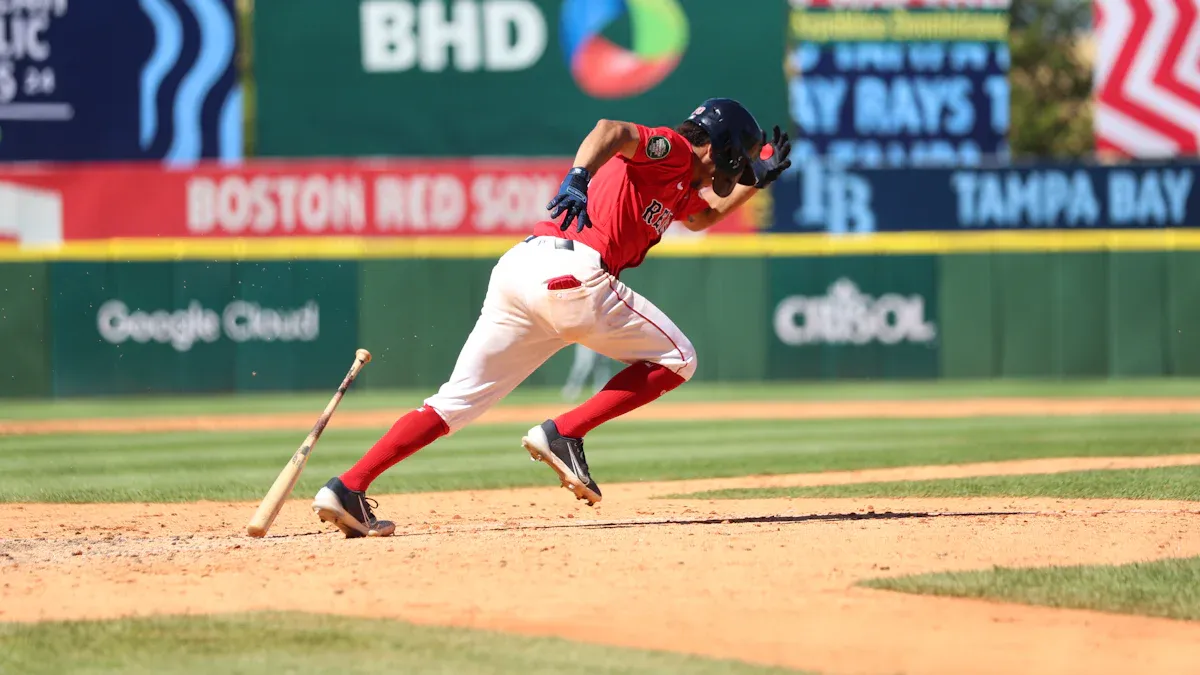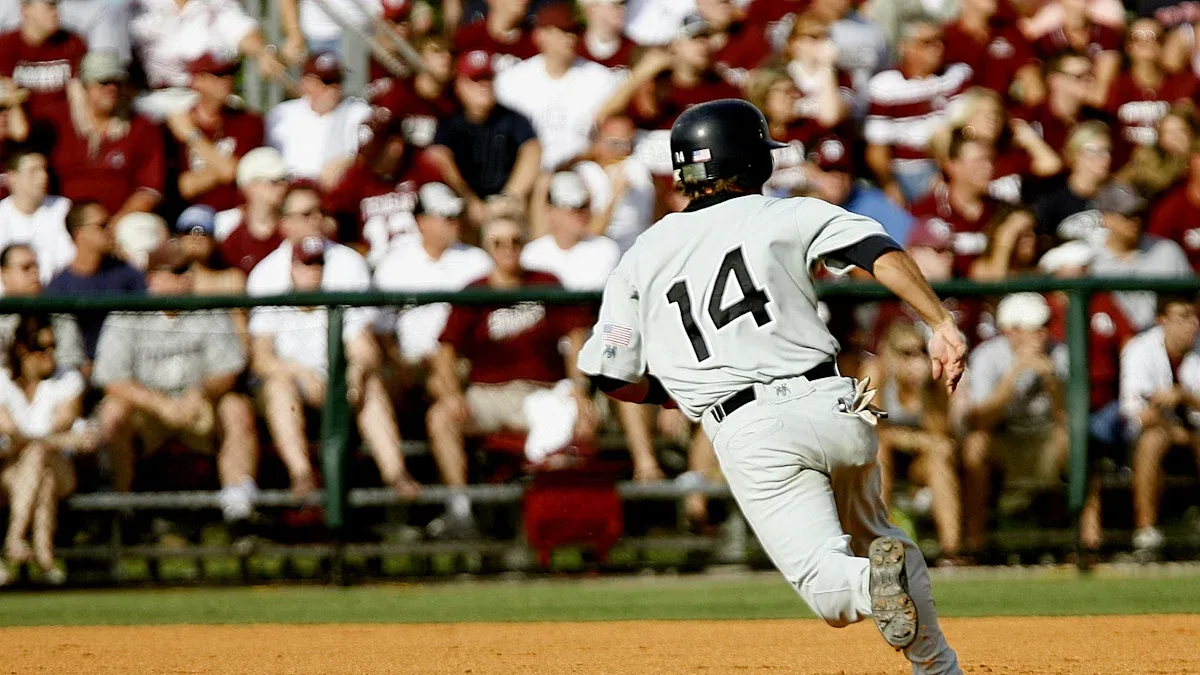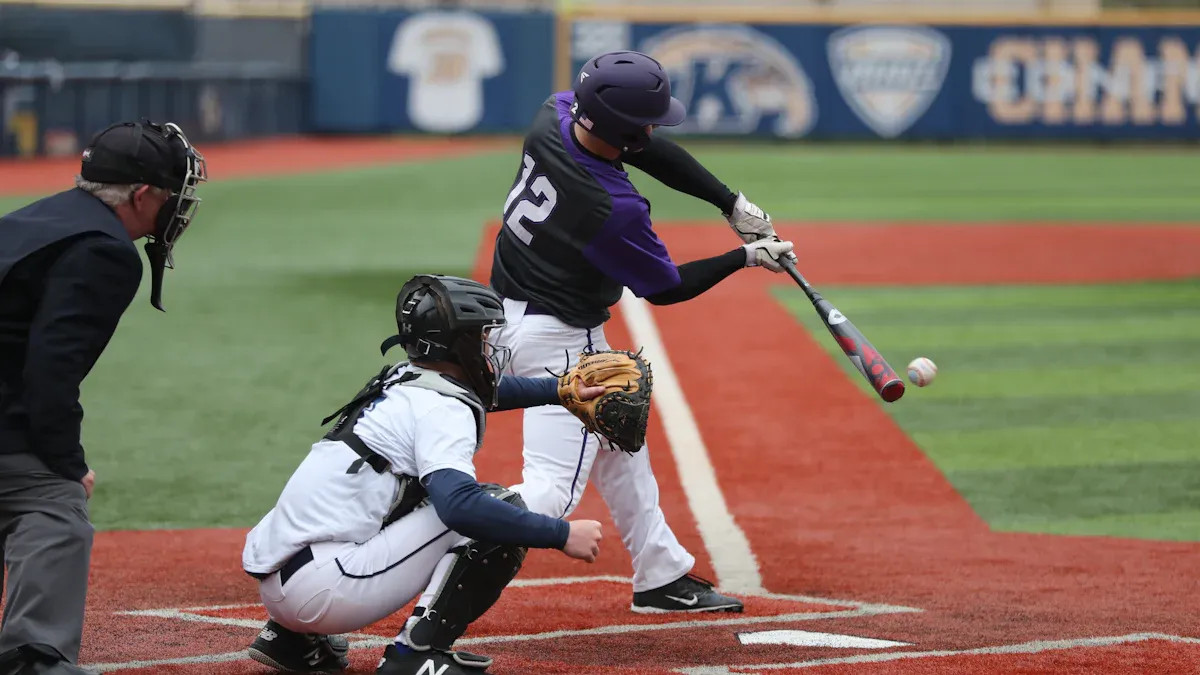
In baseball, “GP” refers to “Games Played,” and the GP mean indicates the average number of games a player participates in during a season. This statistic highlights how frequently a player is available and their overall contribution to the team.
Participation numbers emphasize its importance. For instance:
In 2023, 16.7 million people played baseball, marking the highest participation since 2008.
Casual players increased to 8.9 million, reflecting a 108% growth since 2014.
By analyzing the GP mean, teams can better understand a player’s reliability and value to their performance.
Key Takeaways
‘GP’ stands for ‘Games Played‘ and shows how often a player joins games. It reflects their importance to the team.
A higher ‘gp mean’ means the player is healthy and ready. This is important for the team’s success and planning.
Knowing ‘gp mean’ helps teams pick reliable players. It affects contracts and how well the team does in the league.
Why ‘gp mean’ matters in baseball statistics

Understanding player availability and participation
The “gp mean” shows how often a player is available. A higher number means the player is present and ready to help. This is important for key players on the team. For example, if a star pitcher or hitter has a low “gp mean,” it might mean they are injured or unavailable.
Teams use this data to decide on their rosters. Coaches check the “gp mean” to find players who can handle a full season. This helps teams pick reliable players who can perform well over time.
Checking consistency and durability
The “gp mean” also shows how steady and strong a player is. Players who play most games show they can stay healthy and handle baseball’s demands. Studies show career length depends on weight, height, and starting age. Bigger players or late starters often have shorter careers. This proves durability is key for long-term success.
Looking at a player’s “gp mean” shows how they handle a long season. Playing often helps players stay in rhythm and perform better. Active players usually help their teams more.
Effect on team performance and strategy
The “gp mean” affects how well a team plays and plans. Teams with players who play often work better together. Managers can use a steady lineup to create winning strategies. But if players miss games, it can hurt team chemistry and force changes.
A study on bullpen use showed modern strategies don’t always work better. This proves that having players available is still very important for success.
By studying the “gp mean,” you can see how player participation helps a team. Teams with dependable players often stay strong and follow their game plans better.
How ‘gp mean’ is calculated and recorded
Official scorekeeping methods in baseball
Baseball uses detailed scorekeeping to track stats like “gp mean.” Scorers follow set rules to keep records accurate. They note game details, player lineups, and plays. The table below shows key parts of scorekeeping:
Feature | Description |
|---|---|
General Game Information | Records date, time, location, teams, and more. |
Batting Lineup | Lists players, their positions, and uniform numbers. |
Play-by-Play Action | Tracks every action during the game. |
Player Statistics | Adds up at-bats, hits, runs, and other stats. |
Pitcher Statistics | Notes innings pitched, strikeouts, and other data. |
Scorers also use abbreviations for game events. For example:
1 = pitcher, 2 = catcher, 3 = first base, etc.
1B = single, 2B = double, HR = home run, RBI = run batted in.
The League President picks the Official Scorer for each game. Scorers make decisions like whether a hit was earned or due to an error. This keeps stats, including “gp mean,” fair and accurate.
Criteria for counting a game as “played”
Not all games count toward a player’s “gp mean.” Baseball has rules to decide if a game is official. The table below explains these rules:
Criteria/Condition | Description |
|---|---|
Official Game Definition | A game must have nine innings or meet special rules. |
Minimum Innings for Official Status | At least five innings must be played (or 4½ if the home team leads). |
Stoppage Conditions | Games stopped early can count if inning rules are met. |
No Game Status | Games stopped before five innings don’t count unless suspended. |
Statistics Counting | Stats count only if the game is official. |
A game must meet these rules to count as “played.” If a game ends too soon, it won’t affect a player’s “gp mean.” This ensures fairness in tracking games.
Differences between starting players and substitutes
Starting players and substitutes are recorded differently in stats. Starters usually play more and boost their “gp mean.” Substitutes follow special rules that affect their records. Key differences include:
Starting pitchers can re-enter if they switch to another position.
If fully removed, they can return once but not as pitchers.
Courtesy runners stay tied to the player they replace unless officially added.
These rules ensure fair stats for both starters and substitutes. Knowing this helps explain how “gp mean” shows a player’s role and impact on the team.
Examples of ‘gp mean’ in player stats

Historical examples of high GP seasons
Some baseball players have set amazing “games played” (GP) records. Cal Ripken Jr., called the “Iron Man,” holds the record for 2,632 straight games. His streak lasted from 1982 to 1998, showing his strength and dedication. Lou Gehrig, with 2,130 consecutive games, held the earlier record. These players showed how high GP numbers reflect endurance and loyalty. Their records are still seen as a standard for reliability in baseball.
Connection between GP and player performance
A player’s GP often links to how well they perform. Playing more games gives players more chances to help their team win. Players with high GP numbers stay in rhythm, keeping good batting and fielding stats. Teams depend on these players for steady performance all season. By studying the gp mean, teams can find players who perform well regularly and are key to success.
Impact of GP on contracts and awards
The number of games a player plays affects their contracts and awards. Players often play better during contract years to get bigger deals. For example, Raul Ibañez raised his OPS from .792 to .869 in his last Mariners season, earning $11 million. Later, his 2008 performance got him a $31.5 million Phillies deal. Teams also check GP to judge a player’s dependability. The table below shows trends in contracts:
Evidence | Explanation |
|---|---|
Teams now focus on future performance over past stats. | |
Teams are cautious about paying for players over 32 | Older players face risks, so teams offer smaller deals. |
Increased value seen in pitchers | Teams invest more in pitchers due to advanced stats. |
These examples show how GP affects contracts and awards. Consistent participation is very important for players.
Knowing “GP” means “Games Played” shows player participation. It helps managers decide quickly using real-time data. This improves how the team works together. Studying stats gives a clear view of performance. Coaches can check opponent data to plan better strategies. This is key for winning games.
FAQ
What does “gp mean” in baseball statistics?
“GP” means “Games Played.” It shows how many games you play in a season.
Does “gp mean” include games where a player doesn’t start?
Yes, it counts games even if you come in as a sub. Playing in any way adds to your total.
Why is “gp mean” important for fans?
It helps you see how reliable a player is. High numbers often show they are steady and strong.
